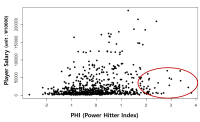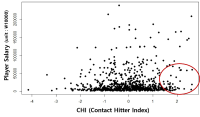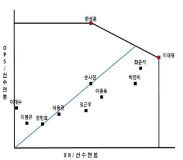
Purpose The primary purpose of this study is to show and guide how to construct a large variety of behaviors in systems dynamic for sport science. Methods By applying a simple algorithm to networked agents, which could, conceivably, offer a straightforward way out of the complexity, computational mechanism which along with its dynamics (payoff, failure, and strategy) involved. Results The model starts with the probability that systemic risk potential such as failure spreads. Even in a very random structure commonly used in sports field, propagation of the potential is guaranteed by an arbitrary network property of a set of elements. Despite the intensive systemic potential, the opposite type of potential like absence of failure could also be driven when there has been a strong investment in protection through a heuristically evolved protection level. Conclusion The implementation still needs to be polished against what happens in the real sports world, but in general, applied conceptual principle and methodological techniques behind the network-agent based mechanisms could be useful for researchers those who need to use systemes dynamic to guard in sport science.










Purpose The main purpose of this current study is two-fold. Firstly, it attempts to develop a model to determine the true market value of Korean professional baseball players (hitters only) solely based on their athletic performances on the field. Secondly, it is to provide the evidential data for the market value of baseball players in Korea. Methods The statistical data and performance information were obtained from baseball almanac from KBO from 1997 to 2016. Seven hundred and ninety three players were included for data analysis. Principal component factor analysis was utilized to eliminate multicollinearity among 12 sabermetrics indices (OPS, GPA, SECA, TA, RC, RC/27, XR, ISO, PSN, sOBA, %OW, BABIP) and increase power of explanation of the proposed model with KMO(=0.77), p<0.001. Results The proposed model was successfully developed with YSalary = Years of Experience*921.5 + FA (free agent)*53528.9 + PHI(Power Hitter Index)*7313 + CHI(Contact Hitter Index)*5893.6. Furthermore, the proposed model explained 64.5% of variances of the market value for the Korean professional baseball players and proved to be statistically valid. Conclusions The newly developed model in this study was very helpful for us to identify the variables that affect the true market value of baseball players. It is expected that this model could make an important contribution in determining true market value of the baseball players in Korea.




This paper analyze Korean baseball player's efficiency based on entire team and each team by using DEA (Data Envelopment Analysis) and use this efficiency to discuss effective way of recruiting players. Therefore, the purpose of this study was to evaluate each professional baseball team management efficiency through Data Envelopment Analysis. Player who were qualified free agent salary for the input variable and OPS and XR for output variable were used respectively then data were analyzed using Frontier Analyst 4.0. Also the recruiting factors of FA baseball player were confirmed by five baseball experts. we categorize the five factors of recruiting: age, durability, skill of improvement or decline, steady record, necessary position. The results were as follows. First, Han Sang-Hun and Lee Dae-Hyeong recorded the most efficient management among all professional baseball player. On the other hand, Choi showed inefficient management, followed by Park Han-Yi, Son Si-Heon, Lee Jong-wook, Jeong Keun-Woo, Lee Yong-Kyu, Lee Dae-Soo, Kang Min-Ho, Lee Byeong-Kyu.
